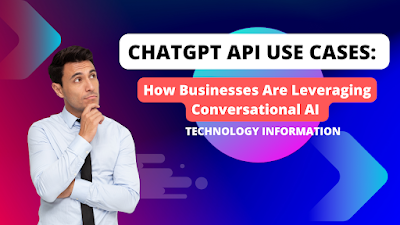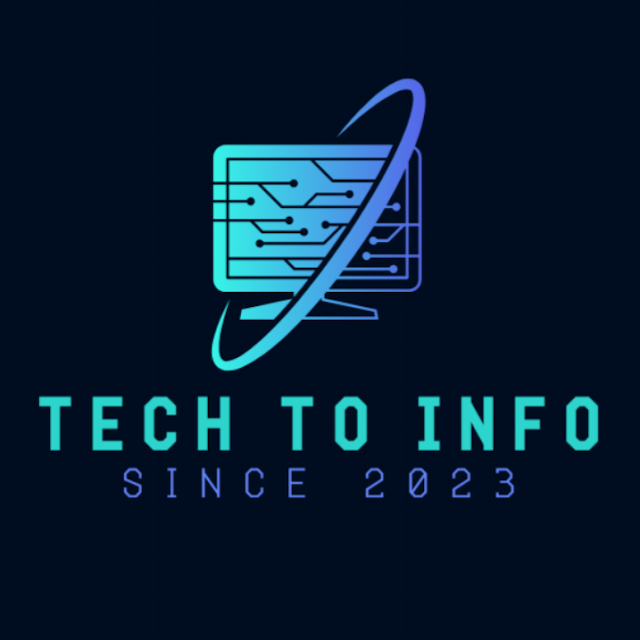ChatGPT API Use Cases: How Businesses Are Leveraging Conversational AI
In the ever-evolving landscape of artificial intelligence, ChatGPT API has emerged as a powerful tool that businesses across various industries are leveraging to enhance their operations, engage with customers, and streamline processes. In this article, we will explore the diverse use cases of ChatGPT API and how it is transforming the way businesses interact with users through conversational AI.
Understanding ChatGPT API
Before delving into the use cases, let's briefly understand what ChatGPT API is. ChatGPT API is an interface that allows developers to integrate OpenAI's ChatGPT model into their applications, products, or services. ChatGPT is a language model that can generate human-like text based on the input it receives, making it a powerful tool for building conversational AI systems.
1. Enhancing Customer Support
One of the most prominent use cases of ChatGPT API is in the realm of customer support. Businesses are integrating ChatGPT into their websites and applications to provide immediate assistance to customers. When a user has a question or faces an issue, ChatGPT can provide instant responses, guiding users through troubleshooting steps or directing them to relevant resources. This not only improves customer satisfaction but also reduces the workload on human support agents, allowing them to focus on more complex issues.
2. Personalized Shopping Assistance
E-commerce businesses are utilizing ChatGPT API to offer personalized shopping experiences to their customers. By analyzing user preferences and browsing behavior, ChatGPT can recommend products, answer queries, and provide product descriptions. This level of personalization enhances user engagement and drives sales by helping customers find the products that best suit their needs.
3. Content Generation and Marketing
Content creation can be a time-consuming process for businesses. ChatGPT API can assist in generating content for marketing campaigns, blog posts, product descriptions, and more. It can quickly produce high-quality, relevant content based on specific keywords and topics, allowing businesses to maintain an active online presence and engage their audience effectively.
4. Language Translation and Localization
For businesses with a global reach, language translation and localization are essential. ChatGPT API can be integrated into applications to provide real-time translation services, helping businesses communicate with customers and partners in multiple languages. This functionality is especially valuable in the e-commerce, travel, and hospitality sectors.
5. Virtual Assistants and Chatbots
ChatGPT API is a core component of many virtual assistants and chatbots used by businesses. These AI-driven virtual assistants can handle a wide range of tasks, from answering frequently asked questions to scheduling appointments and providing product recommendations. They operate 24/7, ensuring consistent and efficient customer interactions.
6. Market Research and Data Analysis
Analyzing vast amounts of textual data can be a daunting task for businesses. ChatGPT API can assist in extracting insights and trends from text data, enabling businesses to make data-driven decisions. It can be employed in market research to analyze customer feedback, reviews, and social media conversations, helping businesses refine their products and services.
7. Educational Resources
In the education sector, ChatGPT API is used to create interactive and engaging learning resources. It can generate quiz questions, explanations, and even simulate conversations with historical figures or fictional characters, making learning more enjoyable and informative.
Implementing ChatGPT API
To implement ChatGPT API effectively, businesses need to consider a few key factors:
1. Data Privacy and Security:
Ensure that sensitive customer data is handled securely and that the AI model doesn't disclose confidential information.
2. Fine-tuning:
Customization of the ChatGPT model through fine-tuning is often necessary to make it more context-aware and aligned with specific business needs.
3. Scalability:
As user interactions increase, businesses should ensure that their infrastructure can handle the load and maintain low-latency responses.
4. Monitoring and Feedback:
Continuous monitoring of AI-generated interactions is crucial to identify and rectify any issues. User feedback is invaluable in refining the AI's responses.
Conclusion
The adoption of ChatGPT API is reshaping how businesses engage with their customers and streamline their operations. From customer support to content generation, language translation, and data analysis, the use cases are diverse and expanding. By harnessing the power of conversational AI, businesses can stay competitive, enhance user experiences, and drive growth.
In the rapidly evolving world of AI and natural language processing, ChatGPT API stands as a testament to the potential of AI-driven conversational interfaces. As businesses continue to innovate and find new ways to leverage this technology, the future of AI-driven customer interactions looks promising.
So, whether you are in e-commerce, customer service, marketing, or any other industry, ChatGPT API can be a valuable addition to your toolkit, helping you provide better experiences for your customers and gain a competitive edge in the market.




.png)

0 Comments